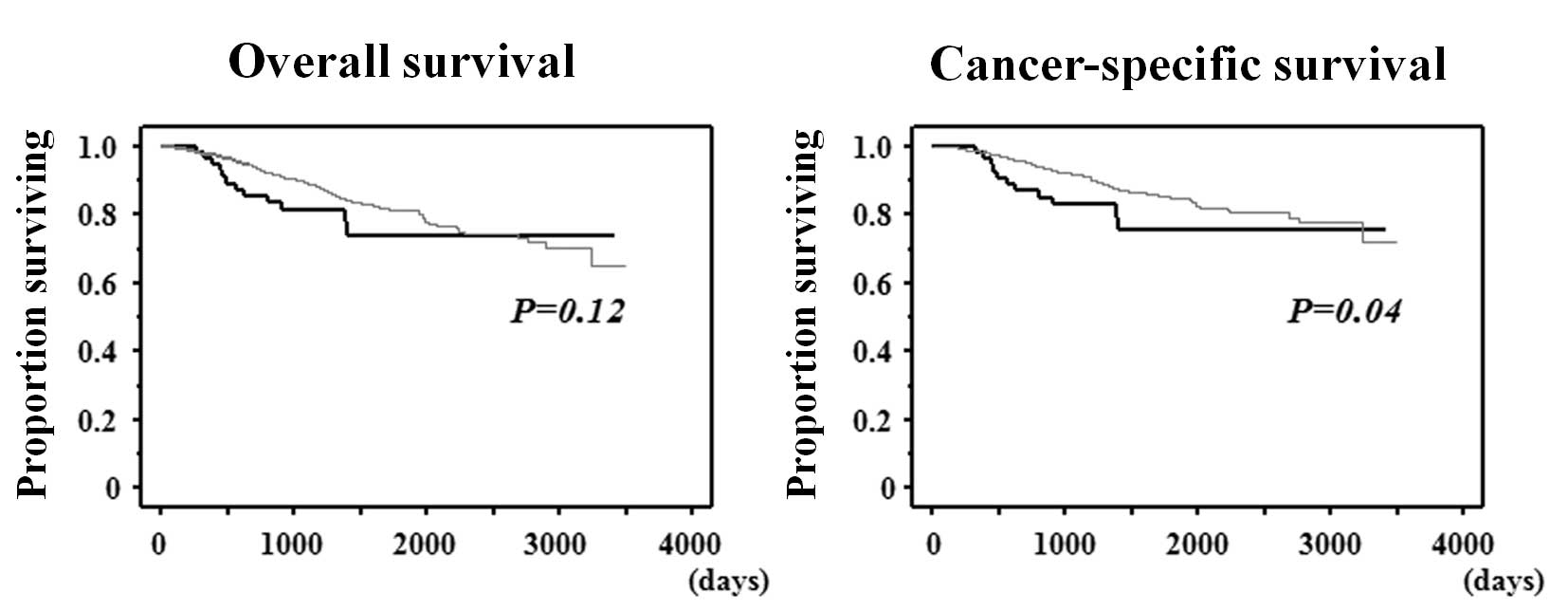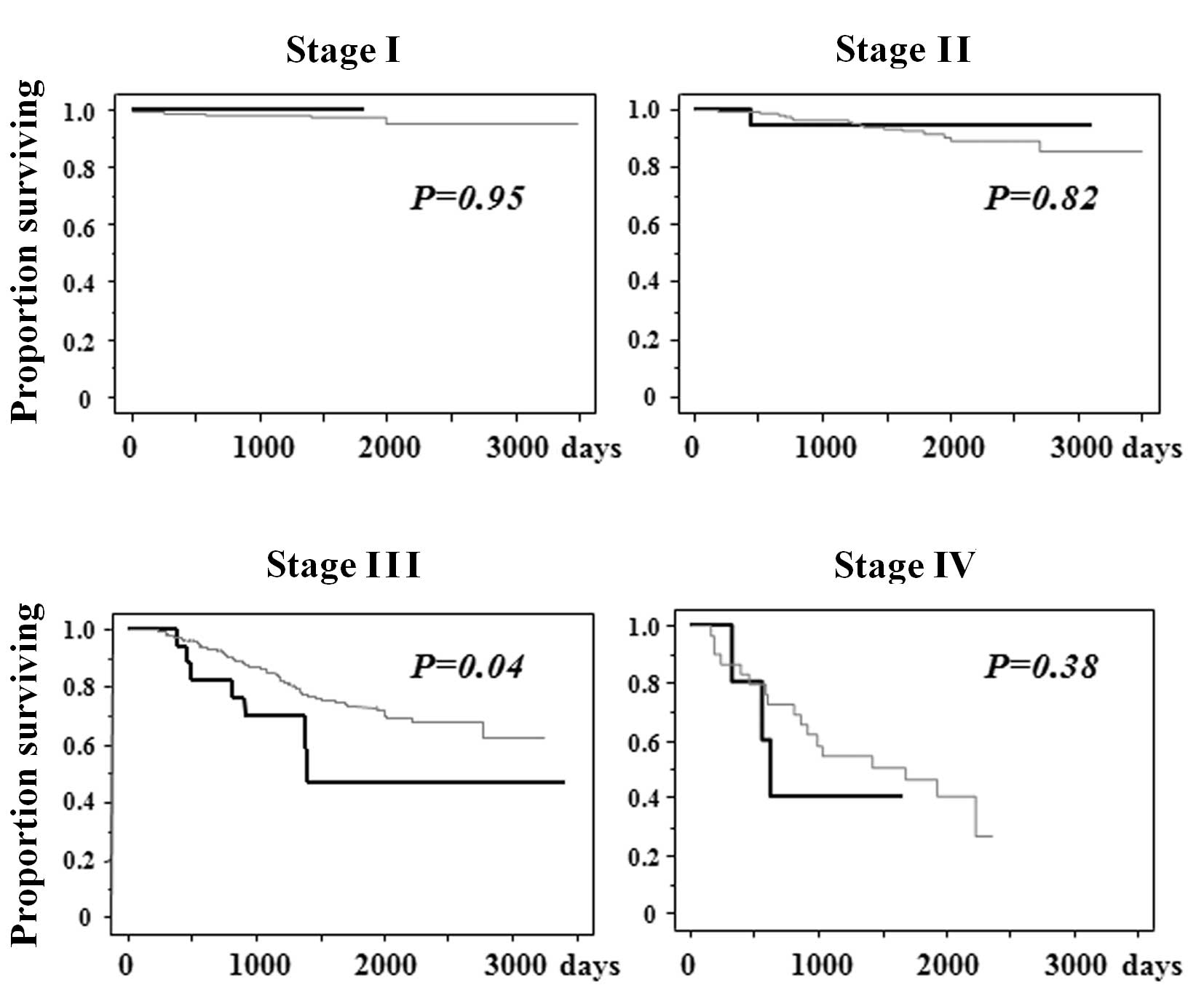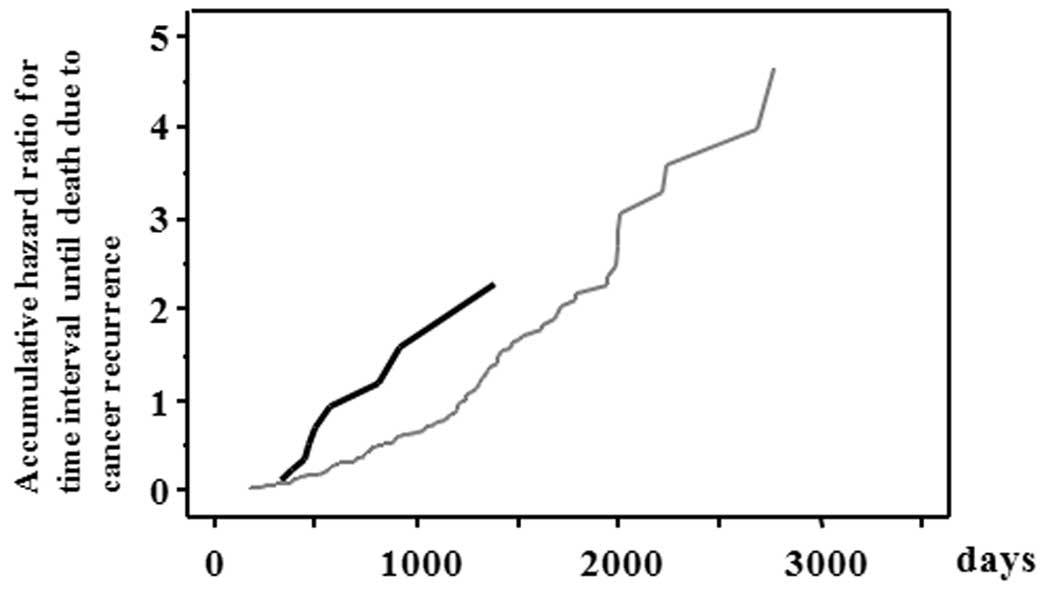|
1
|
Collins TC, Daley J, Henderson WH, et al:
Risk factors for prolonged length of stay after major elective
surgery. Ann Surg. 230:251–259. 1999. View Article : Google Scholar : PubMed/NCBI
|
|
2
|
Tsutsui S, Moriguchi S, Morita M, et al:
Multivariate analysis of postoperative complications after
esophageal resection. Ann Thorac Surg. 53:1052–1056. 1992.
View Article : Google Scholar : PubMed/NCBI
|
|
3
|
Nowacki MP and Szymendera JJ: The
strongest prognostic factors in colorectal carcinoma.
Surgicopathologic stage of disease and postoperative fever. Dis
Colon Rectum. 26:263–268. 1983. View Article : Google Scholar : PubMed/NCBI
|
|
4
|
Hirai T, Yamashita Y, Mukaida H, et al:
Poor prognosis in esophageal cancer patients with postoperative
complications. Surg Today. 28:576–579. 1998. View Article : Google Scholar : PubMed/NCBI
|
|
5
|
Lagarde SM, De Boer JD, Ten Kate FJ, et
al: Postoperative complications after esophagectomy for
adenocarcinoma of the esophagus are related to timing of death due
to recurrence. Ann Surg. 247:71–76. 2008. View Article : Google Scholar : PubMed/NCBI
|
|
6
|
Fucini C, Bandettini L, D’Elia M, et al:
Are postoperative fever and/or septic complications prognostic
factors in colorectal cancer resected for cure? Dis Colon Rectum.
28:94–95. 1985. View Article : Google Scholar : PubMed/NCBI
|
|
7
|
Akyol AM, McGregor JR, Galloway DJ, et al:
Anastomotic leaks in colorectal cancer surgery: a risk factor for
recurrence? Int J Colorectal Dis. 6:179–183. 1991. View Article : Google Scholar : PubMed/NCBI
|
|
8
|
Nespoli A, Gianotti L, Totis M, et al:
Correlation between postoperative infections and long-term survival
after colorectal resection for cancer. Tumori. 90:485–490.
2004.PubMed/NCBI
|
|
9
|
Dionigi R, Dominioni L and Campani M:
Infections in cancer patients. Surg Clin North Am. 60:145–159.
1980.
|
|
10
|
Wigmore SJ, McMahon AJ, Sturgeon CM, et
al: Acute-phase protein response, survival and tumour recurrence in
patients with colorectal cancer. Br J Surg. 88:255–260. 2001.
View Article : Google Scholar : PubMed/NCBI
|
|
11
|
Varty PP, Linehan IP and Boulos PB:
Intra-abdominal sepsis and survival after surgery for colorectal
cancer. Br J Surg. 81:915–918. 1994. View Article : Google Scholar : PubMed/NCBI
|
|
12
|
Sobin LH and Fleming ID: TNM
Classification of Malignant Tumors. 5th edition (1997) Union
Internationale Contre le Cancer and the American Joint Committee on
Cancer. Cancer. 80:1803–1804. 1997. View Article : Google Scholar : PubMed/NCBI
|
|
13
|
Walker KG, Bell SW, Rickard MJ, et al:
Anastomotic leakage is predictive of diminished survival after
potentially curative resection for colorectal cancer. Ann Surg.
240:255–259. 2004. View Article : Google Scholar : PubMed/NCBI
|
|
14
|
Keynes WM: Implantation from the bowel
lumen in cancer of the large intestine. Ann Surg. 153:357–364.
1961. View Article : Google Scholar : PubMed/NCBI
|
|
15
|
Fermor B, Umpleby HC, Lever JV, et al:
Proliferative and metastatic potential of exfoliated colorectal
cancer cells. J Natl Cancer Inst. 76:347–349. 1986.PubMed/NCBI
|
|
16
|
Skipper D, Cooper AJ, Marston JE, et al:
Exfoliated cells and in vitro growth in colorectal cancer. Br J
Surg. 74:1049–1052. 1987. View Article : Google Scholar : PubMed/NCBI
|
|
17
|
Gertsch P, Baer HU, Kraft R, et al:
Malignant cells are collected on circular staplers. Dis Colon
Rectum. 35:238–241. 1992. View Article : Google Scholar : PubMed/NCBI
|
|
18
|
Fujita S, Teramoto T, Watanabe M, et al:
Anastomotic leakage after colorectal cancer surgery: a risk factor
for recurrence and poor prognosis. Jpn J Clin Oncol. 23:299–302.
1993.PubMed/NCBI
|
|
19
|
Ramer-Quinn DS, Baker RA and Sanders VM:
Activated T helper 1 and T helper 2 cells differentially express
the beta-2-adrenergic receptor: a mechanism for selective
modulation of T helper 1 cell cytokine production. J Immunol.
159:4857–4867. 1997.
|
|
20
|
Spolarics Z, Siddiqi M, Siegel JH, et al:
Depressed interleukin-12-producing activity by monocytes correlates
with adverse clinical course and a shift toward Th2-type lymphocyte
pattern in severely injured male trauma patients. Crit Care Med.
31:1722–1729. 2003. View Article : Google Scholar
|
|
21
|
Aosasa S, Ono S, Mochizuki H, et al:
Activation of monocytes and endothelial cells depends on the
severity of surgical stress. World J Surg. 24:10–16. 2000.
View Article : Google Scholar : PubMed/NCBI
|
|
22
|
Mokart D, Capo C, Blache JL, et al: Early
postoperative compensatory anti-inflammatory response syndrome is
associated with septic complications after major surgical trauma in
patients with cancer. Br J Surg. 89:1450–1456. 2002. View Article : Google Scholar
|
|
23
|
Tsujimoto H, Ono S, Majima T, et al:
Differential toll-like receptor expression after ex vivo
lipopolysaccharide exposure in patients with sepsis and following
surgical stress. Clin Immunol. 119:180–187. 2006. View Article : Google Scholar : PubMed/NCBI
|
|
24
|
Clerici M, Shearer GM and Clerici E:
Cytokine dysregulation in invasive cervical carcinoma and other
human neoplasias: time to consider the TH1/TH2 paradigm. J Natl
Cancer Inst. 90:261–263. 1998. View Article : Google Scholar : PubMed/NCBI
|
|
25
|
Moore KW, O’Garra A, De Waal Malefyt R, et
al: Interleukin-10. Annu Rev Immunol. 11:165–190. 1993. View Article : Google Scholar : PubMed/NCBI
|
|
26
|
Beissert S, Hosoi J, Grabbe S, et al:
IL-10 inhibits tumor antigen presentation by epidermal
antigen-presenting cells. J Immunol. 154:1280–1286. 1995.PubMed/NCBI
|
|
27
|
Mynster T, Christensen IJ, Moesgaard F, et
al: Effects of the combination of blood transfusion and
postoperative infectious complications on prognosis after surgery
for colorectal cancer. Danish RANX05 Colorectal Cancer Study Group.
Br J Surg. 87:1553–1562. 2000. View Article : Google Scholar
|

















